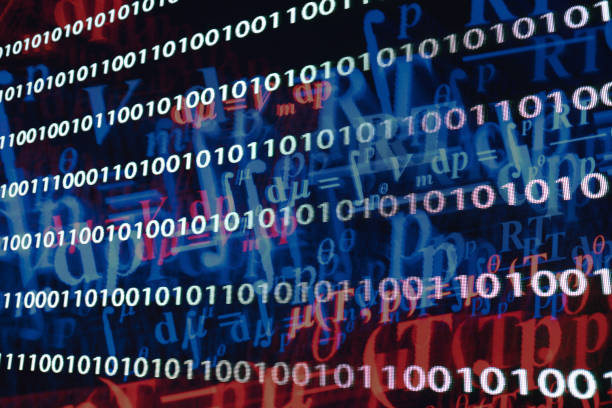
The scope of fraudulent actions has grown in tandem with technological advancements. As a result, one of the most important duties in the transaction process is to maintain security protocols. While blockchain has emerged as one of the most promising breakthroughs, we still require extra security standards to ensure transaction security. In certain situations, Zero-Knowledge Proof, or ZKP, is a viable solution.
From the beginning, blockchain has been linked to cryptography. However, since the introduction of ZKP, the combination of blockchain and encryption has piqued people’s interest. On a blockchain platform, cryptographic techniques are utilised to completely safeguard the transaction. To put it another way, the combination of blockchain and cryptography has resulted in a safe mechanism for financial transactions.
Read: All You Need To Know About Cryptocurrency
What is Zero-Knowledge Proof?
Aren’t you revealing a lot about yourself when you show your driver’s licence to the bartender for ID verification? If this is the case, a method must be devised for sharing only the data that individuals desire to share, rather than all of the information. The emergence of information capitalism needs the creation of data protection measures.
However, while Blockchain is a reliable solution for ensuring the privacy and security of data exchange, transparency is a disadvantage. As a result, Zero-Knowledge Proof (ZKP) has become one of the most often used techniques for ensuring transaction anonymity. As the following explanation indicates, blockchain has witnessed major advancements in recent years.
Cryptography has been regarded as a fundamental component of Blockchain since its conception. In actuality, blockchain cryptography is the fundamental reason for its extensive adoption across a variety of industries and businesses. The ZKP Blockchain applications were born when a new cryptographic protocol or approach based on mathematical foundations was introduced. With the invention of the zero-knowledge proof, cryptography entered a new era. One of the most notable instances is one of the most well-known cryptographic innovations with a wide range of applications, such as nuclear disarmament.
How Does a Zero-Knowledge Proof Work?
Assume you (the prover) have a colorblind friend (the verifier) who can’t tell the difference between a green and a red ball (has zero knowledge about whether the balls are different colors). You must demonstrate that the colours of the balls are distinct, but your friend will want more than your words to be persuaded. For this problem, a ZKP technique would be as follows:
- Your friend picks up the balls and shows you which one is in each hand.
- Then they switch the balls between their hands or put them behind their back.
- They then hand you the balls and inquire as to whether they were switched or not. Because you can tell the difference between the green and red balls, you can simply offer the proper response.
- Your friend is sceptical. You have a 50% chance of accurately guessing whether the balls were exchanged or not, and the balls could be the same colour.
- However, if they do it numerous times, the chances of you correctly guessing whether they exchanged the balls or not each time are little to none. This allows your friend to confirm that the balls are of different colours without understanding what they are.
In real-world applications of ZKPs, a set of cryptographic methods is utilised to enable the verification of a computational statement. For example, a receiver of payment can use ZKP methods to verify that the payer has adequate funds in their bank account without learning anything else about the payer’s balance.
Properties of Zero-Knowledge Proofs (ZKP)
Completeness: The verifier can certify that the prover has the appropriate input if a statement is true.
Soundness: The statement cannot be falsified, and the verifier cannot be convinced that the prover has the necessary input if they do not.
Zero-knowledge:The verifier will have no knowledge of anything other than whether the statement is true or untrue. The information and personal data of the third parties are kept private.
Researchers are looking for ways to improve the procedure’s accuracy and limit the number of encounters that two peers must have. To maintain confidentiality, the goal is to decrease the amount of communication and switch to a single reference statement. Zero-knowledge proof applications have been gaining popularity for some time now. This isn’t, however, a brand-new concept that appeared out of nowhere. It has been a fixture in the neighbourhood for the past two decades. The system’s output and efficiency have been improved by researchers. Thanks to today’s technology, a statement can be confirmed in a matter of seconds. Direct communication with the Blockchain is now feasible.
Types of Zero-Knowledge Proofs (ZKP)
Interactive zero-knowledge proofs: To win the verifier’s faith in the presence and authenticity of the prover’s secret information, interactive ZKPs need the prover to complete challenges provided by the verifier. The verification procedure entails the two parties exchanging information until the prover meets the proof’s requirements.
Non-interactive zero-knowledge proofs: The prover must complete tasks presented by a simulated verifier based on the prover’s promises in non-interactive ZKPs. Non-interactive ZKPs differ from interactive ZKPs in that an automated mechanism, rather than a human, verifies the prover’s claims. As a result, these ZKPs necessitate more software and processing power. Non-interactive ZKPs are frequently used in cryptocurrency apps to allow users to conduct transactions without requiring direct interaction between the parties involved.
Applications of Zero-Knowledge Proofs
Users that want control and independence over their data can benefit from ZKPs because they offer flexibility and choice. As a result, it’s not surprising that blockchain and ZKPs have various applications when used together.
Innovative Tech Solutions, Tailored for You
Our leading tech firm crafts custom software, web & mobile apps, designed with your unique needs in mind. Elevate your business with cutting-edge solutions no one else can offer.
Start NowBlockchain
The transparency of public blockchains like Bitcoin and Ethereum allows for public transaction verification. However, it implies little privacy and may result in user deanonymization. Zero-knowledge proofs can provide public blockchains more privacy. Zcash, for example, is based on a sort of zero-knowledge cryptographic approach called Zero-Knowledge Succinct Non-Interactive Argument of Knowledge (Zk-SNAKR).
Finance
Customers can confirm that their secret number is inside a defined range by using ZKPs, which are used by ING. A mortgage applicant, for example, can demonstrate that their income is within the acceptable range without disclosing their specific wage.
Messaging applications
End-to-end encryption has played a huge role in making it possible to send messages confidentially. Traditional messaging apps, on the other hand, require users to confirm their identity to a server. An individual can establish their identification using ZKPs without disclosing any further personal information.
Complex documentation
By combining ZKPs and blockchain, users may securely communicate complex documents. ZKPs can encrypt data in chunks, letting users to control the availability of certain blocks and the information contained within them, allowing some users access while restricting others.
Conclusion
Zero-knowledge proofs provide a safe way to confirm information needed to complete bitcoin transactions and verify users’ identities while keeping personal information confidential. ZKPs use simple algorithms and don’t require any interaction between the parties engaged in transactions, unlike other cryptography solutions.
As blockchain developers see ZKPs’ potential to improve trust and confidentiality in the cryptography realm, we may expect ZKP adoption to rise and become vital in blockchain technology.
Before you go…
Hey, thank you for reading this blog to the end. I hope it was helpful. Let me tell you a little bit about Nicholas Idoko Technologies. We help businesses and companies build an online presence by developing web, mobile, desktop, and blockchain applications.
As a company, we work with your budget in developing your ideas and projects beautifully and elegantly as well as participate in the growth of your business. We do a lot of freelance work in various sectors such as blockchain, booking, e-commerce, education, online games, voting, and payments. Our ability to provide the needed resources to help clients develop their software packages for their targeted audience on schedule is unmatched.
Be sure to contact us if you need our services! We are readily available.











